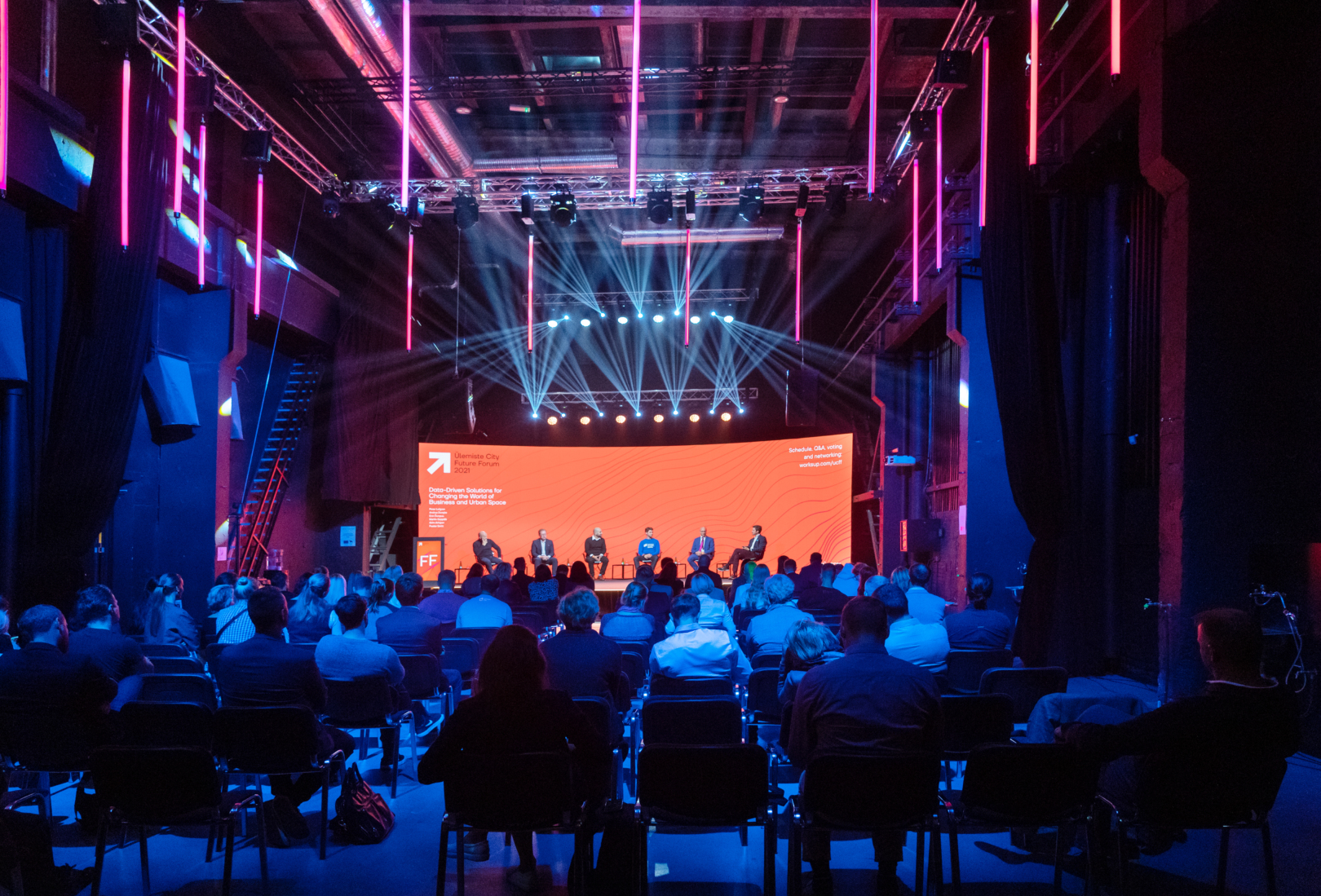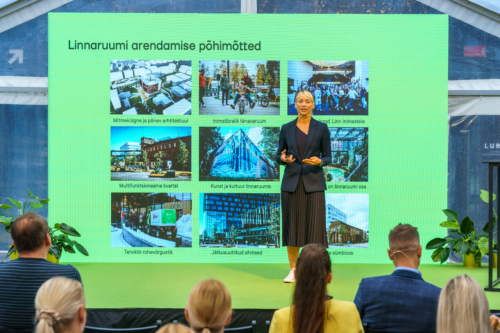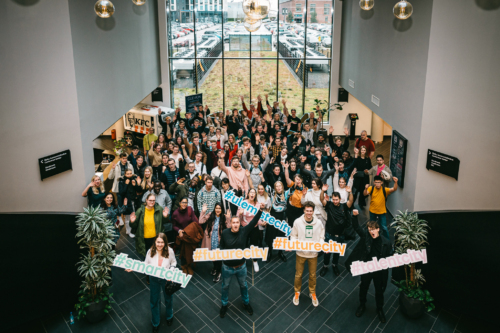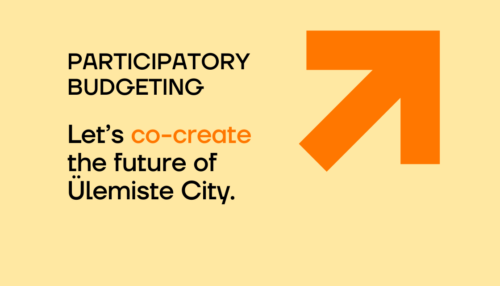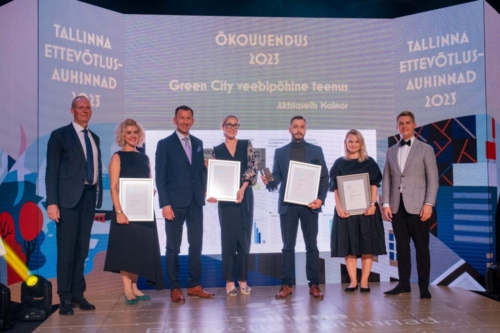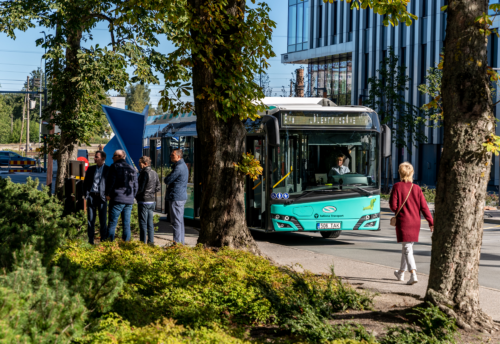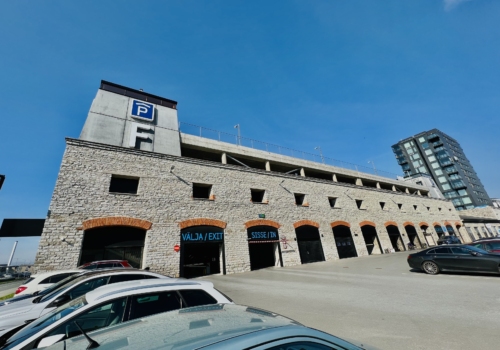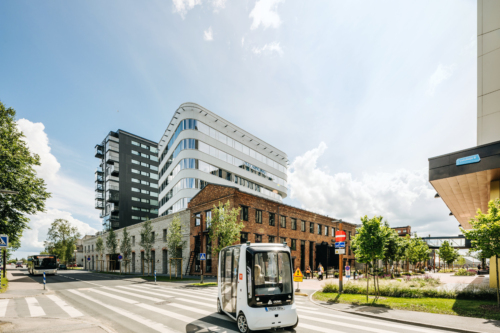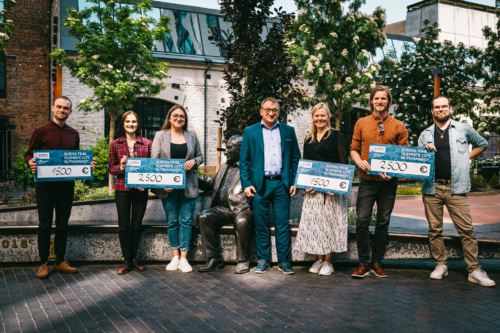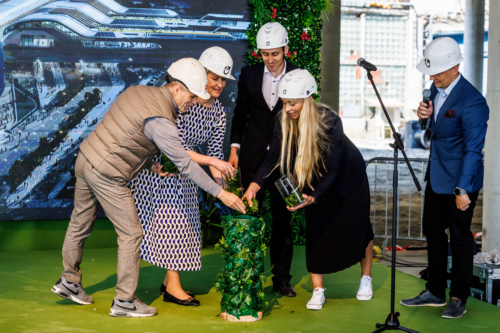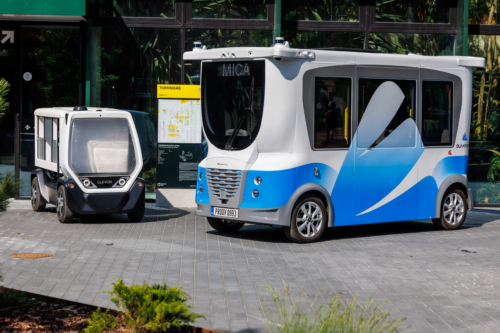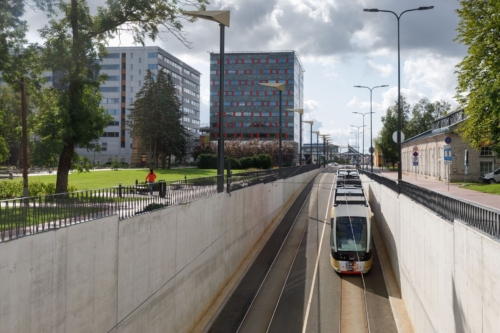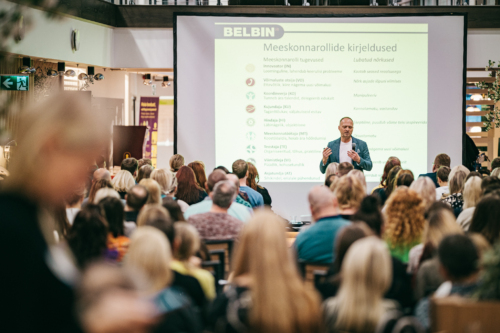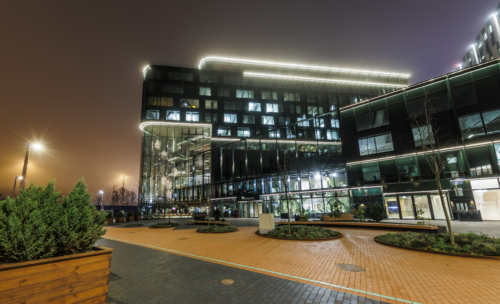10 Trends, How Technology and Business Will Change in the Future
At the international Ülemiste City Future Forum, held in September, over 70 top entrepreneurs, experts and scientists met in Tallinn to discuss how to find and retain talent, the importance of the green environment, and the impact of innovative data and knowledge-based solutions on the ever-changing business and urban space.

The use of data to understand and predict what people expect from urban space and companies is in its infancy. However, a public data marketplace would raise the motivation of creators, and the data could be used to revive the economy, plan cities and identify inhibiting factors within society. All of this will be possible only if the shortage of talents does not begin to slow down innovation and the jobs offered are able to meet their expectations, admitted international experts at the recent conference. Here are the main trends that they see characterising the future of our business world.
1. Unicorn start-ups innovate throughout the value chain
In the case of future business models, companies are increasingly focusing on innovation along the entire length of the value chain. This also means expanding the scope of the company’s activities through different links in the production chain, starting, for example, with the production of materials and ending with the provision of a product-based service to the customer. It is not only the programmers in a technology company who matter; innovation must be created and sustained throughout the entire value chain.
In order to obtain the highest added value, it pays to cover the value chain multiple times and for products from different sectors. Also serving as a good example alongside Skeleton is Bolt, a company that started out offering transport services, has now expanded to include scooter rentals, food delivery and car rentals. It is clear that for them, what counts is the entire value chain, not just one link in the chain.
‘Growth in the range of a few per cent per year can be achieved using a classic business model; however, in order to grow in multiples, more and more should be invested in the entire value chain. For example, you don’t become a unicorn by simply copying someone else and doing the same thing 20% better. Conversely, you should increase the value of your product or service at every stage across the entire value chain, which will provide you with the desired rapid growth,’ says Dr Sebastian Pohlmann, Vice President Automotive & Business Development, Skeleton Technologies.
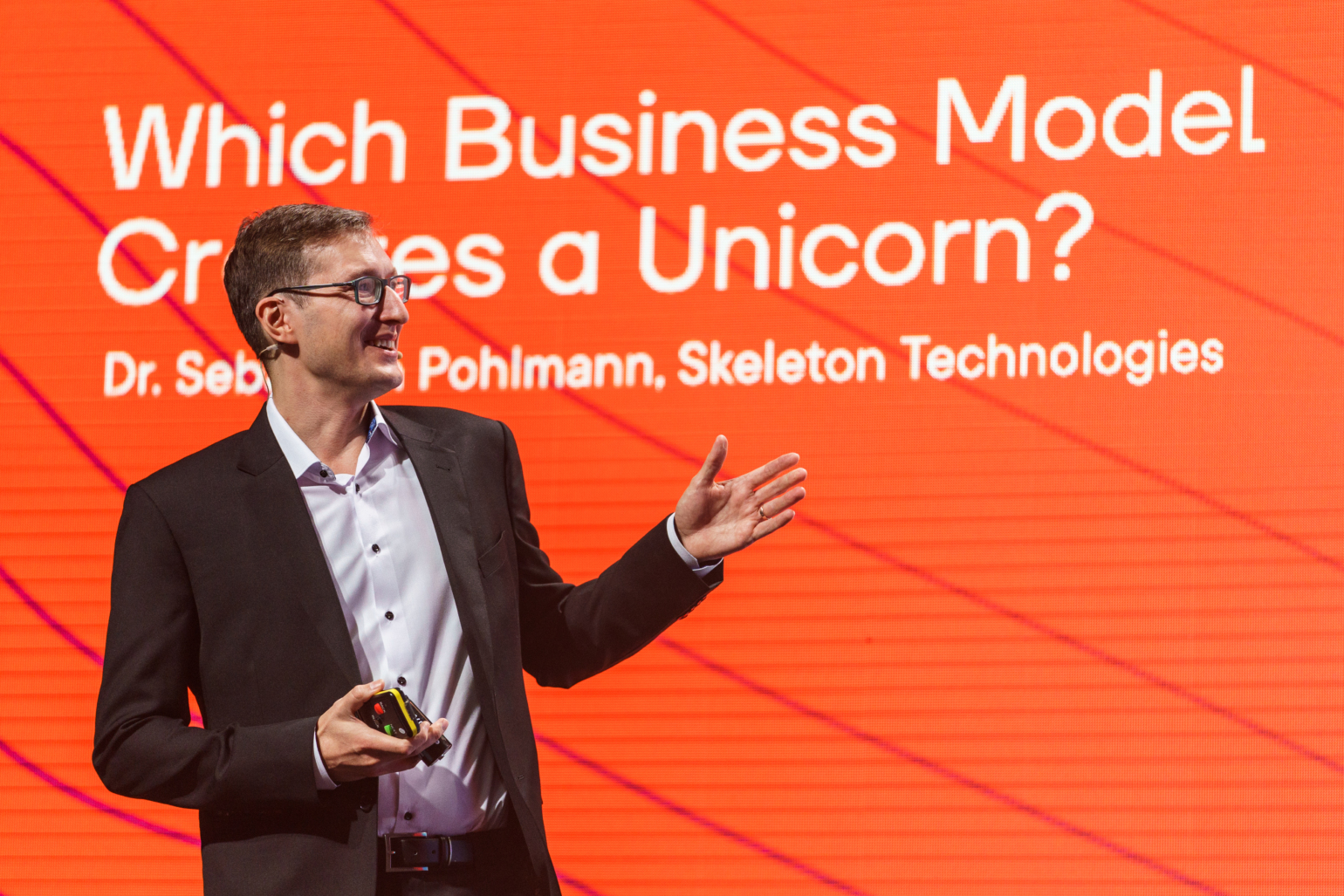
Specifically, creating a unicorn requires more than just an idea – you need a vision. How do you recognise a unicorn?
- A unicorn is not only quantifiable: it offers a tangible solution.
- The unicorn occupies a key position in its field.
- The unicorn is familiar with what technology does well and what it does not do well: its focus is clear.
- The unicorn has the whole picture and looks further ahead than anyone else.
Estonia’s strength in creating unicorns lies in its digital skills. In light of future green trends, a growing number of companies are able to reap the rewards and apply their digital skills to solving green issues.
2. Start-ups within a large company – both benefit from each other’s strengths
In the case of future innovation, growing value creation can be seen within large companies that involve ambitious start-ups in their activities. In such innovation ecosystems, a large company benefits from the speed and bold approach of start-up innovation, while the start-up benefits from the reliability, resources and customer base of the large company. The functioning of such an ecosystem is based on speed, trust, diversity among members and shared values.
Peter Löfgren, CEO of ABB SynerLeap, a Swedish innovation incubator and start-up, presented examples of such cooperation, of which they already have over 140 to show. 33 start-ups were looking to join hands with large companies through ABB SynerLeap at the beginning of 2019, and 96 start-ups had already done so by 2021, a trend that shows no signs of abating.

For example, the technology giant Microsoft has joined with ABB SynerLeap, in order to take advantage of the innovation power of start-ups. To date, more than 200 digital solutions have been developed as a result of technology sharing and start-up collaboration, which ABB is able to use in its various product developments. Competence, employee freedom, meaningful activities, and the right cooperation partners are essential for start-ups and large companies when it comes to innovative business. So:
- It is worth making sure that the company is always up-to-date in terms of competencies.
- Employees should be given the freedom to innovate and conduct research over a certain period of time.
- Think through a precise process for shaping ideas.
- Collaborate with the best universities.
3. Open data market – an opportunity for the greater good
Today, data is generated everywhere and in innumerable quantities – it is estimated that the amount of data doubles every year. The public and private sectors both share an interest in data, for example, when making investments in the company or planning further activities.
The heads of technology companies discussed the possibility that the rapid advancement of technology may result in an entirely new line of business in the future: the systematic trading of data. The prerequisite is innovation by IT companies and an innovative business model, one that would support the emergence of such a data market. ‘When someone completes such a business model, the changes will come quickly,’ said Peeter Smitt, Managing Director of the Estonian IT company Nortal.
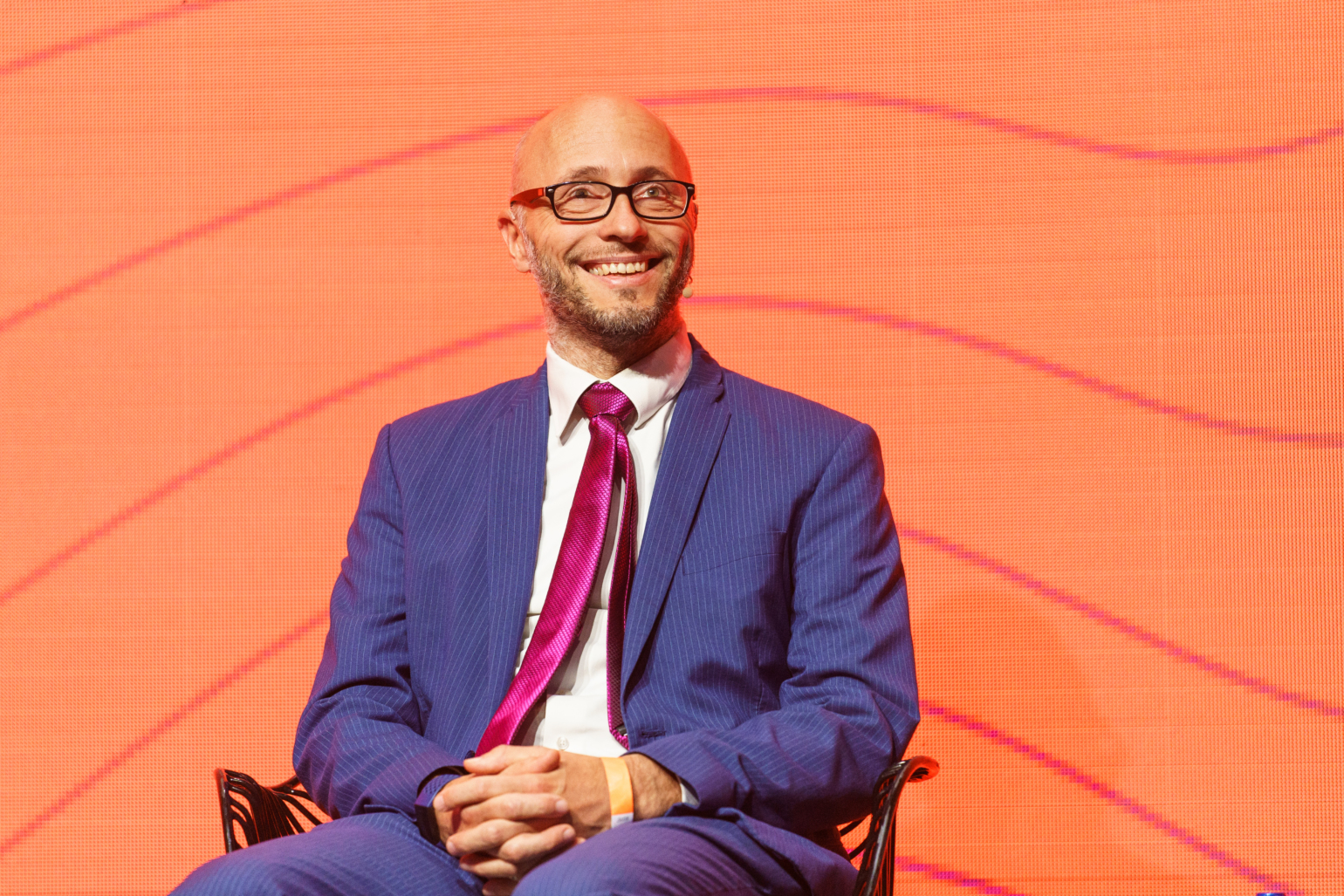
There are all sorts of data to collect – parking, transport and movement, Internet usage, mobile usage, etc. The panellists agreed that if society needs to solve painful problems, global data exchange will be able to handle the job. For example, this has already been done with health data under COVID conditions.
In any case, it is in society’s interest for value to be created with the help of data, which helps to actually change or further develop something. Data interoperability to address environmental challenges is the next step, requiring joint global action and investments.
4. Digital nations are snapping up global talent
The world is currently in the midst of the largest talent shortage in history, one that will cost the global economy an estimated USD 8.5 trillion by 2030. This is money that companies and countries are losing because they simply do not have the necessary manpower.
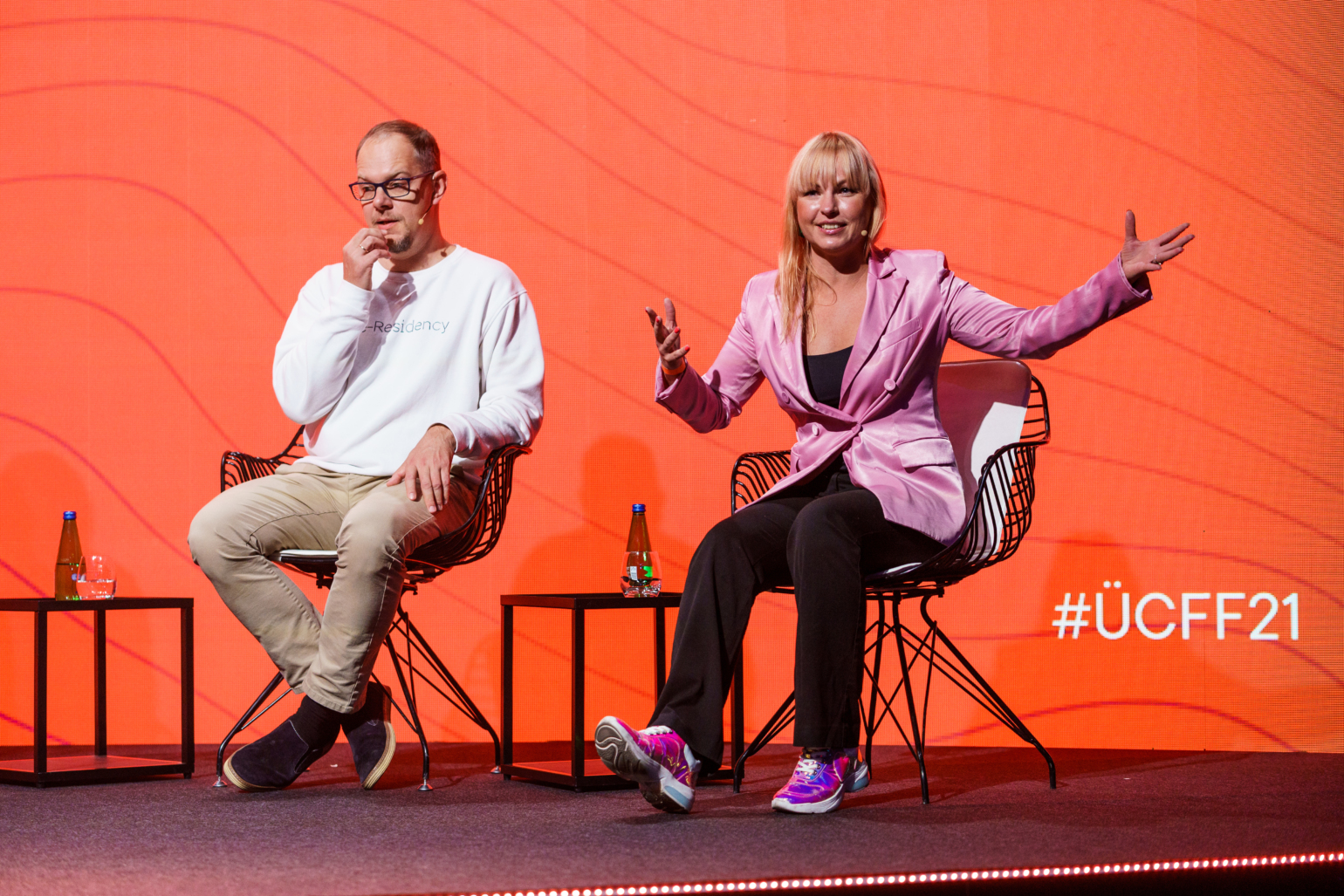
According to Karoli Hindriks, CEO of Jobbatical, a company that deals with cross-border labour migration, the reality is that many people are unable to enter the country they want to work in and hiring them presents quite the challenge. Although the digital landscape has undergone a series of rapid changes and the private sector has managed to successfully keep pace, even the most digitally successful countries are holding back their development by regulating human migration according to the principles of the last century. However, as the labour shortage worsens, it is increasingly likely that digital nations will begin to digitalise and simplify labour migration more vigorously in order to attract a globally attractive workforce.
5. Global talent is attracted by an innovative and healthy environment, not just the workplace
In order to work with truly talented people, companies need to think more and more about how to create talent-based jobs rather than simply pushing a talented person into an existing job. ‘What we need to do is create an attractive environment and jobs for talented people, which will itself draw them here and allow them to further develop themselves,’ emphasised Meelis Lang, Head of Innovation at the software company Helmes.

Leonardo Ortega, Head of the International House of Estonia, emphasised that there are many values in Estonia with which to attract talent: The affection of the Estonian people and companies with everything digital, the opportunity to easily speak with a company’s management and security – so safe that, in the eyes of Ortega, who hails from Mexico, there are no waves in this sea.
6. The city of the future is one with nature
A great example of the combination of people and nature is the Chinese city of Wuhan, which suffered from floods for years as a result of urbanisation. This happened until extensive green areas with lush vegetation began to be created in coastal areas. The record-breaking and long rainy season of 2020, with up to 472 mm of rainwater added per day, proved that working together with nature was worth it. Despite a record amount of rainfall, no serious flooding occurred in the city.
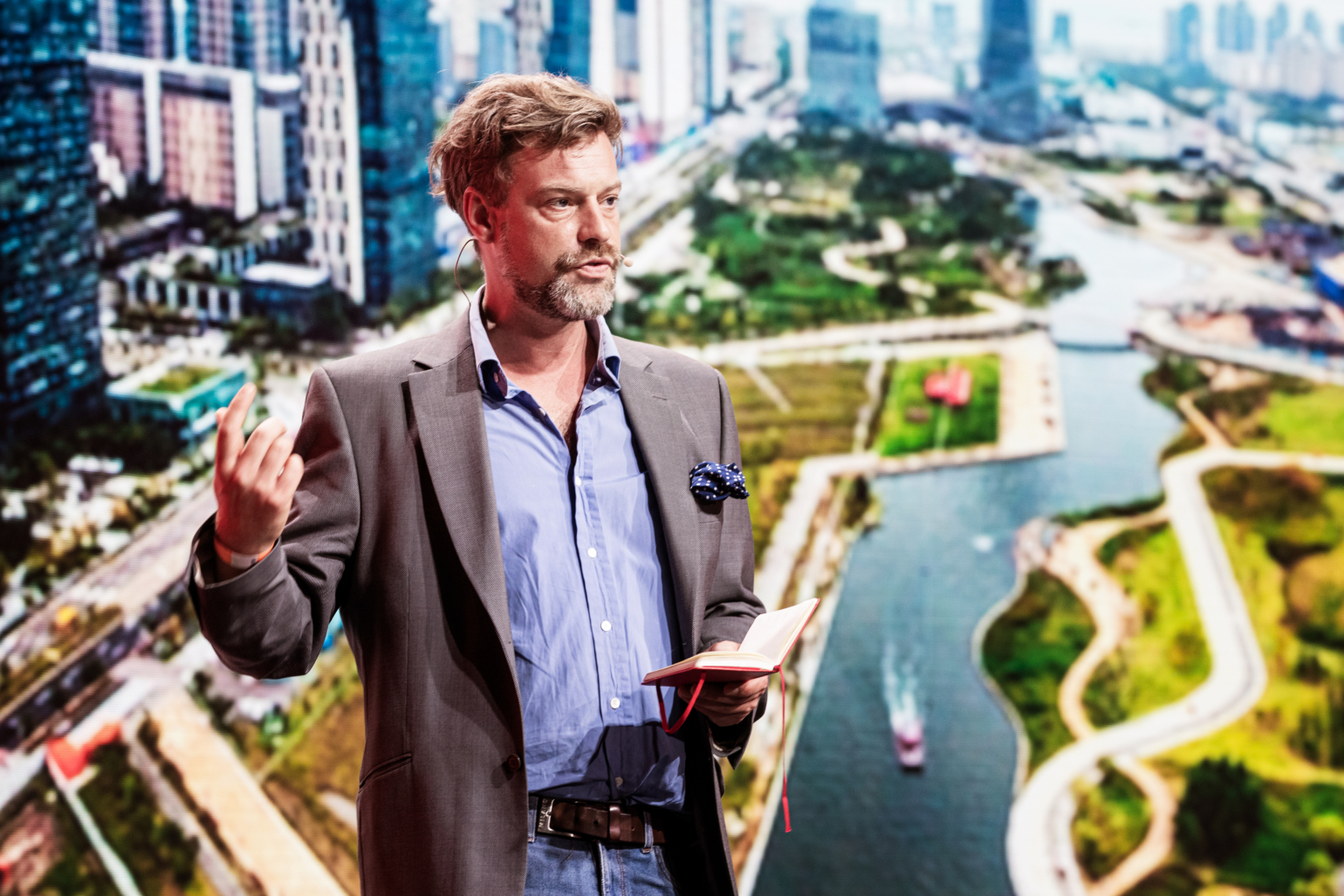
Ben Wilson, British historian, a journalist at The Times and author of five books, believes that the most successful cities of the future will be those that can take advantage of the benefits offered by nature. In other words, the key factor in planning cities of the future is the community formed between people and nature – increasing the number of green areas, reducing the car-centric view and improving air quality.
7. Bio-hacking will become a natural part of health development
Swedish entrepreneur and biohacker Hannes Sapiens Sjoblad believes that technology, with the help of health data, will be able to take better care of our health in the future. For example, he has had a subcutaneous chip implanted that measures temperature, and which can also be developed to detect other health indicators. At the same time, Sjoblad believes that patients with mild ailments will no longer have to visit the hospital in the future – the functions of the hospital must reach the patients themselves with the help of digital solutions.
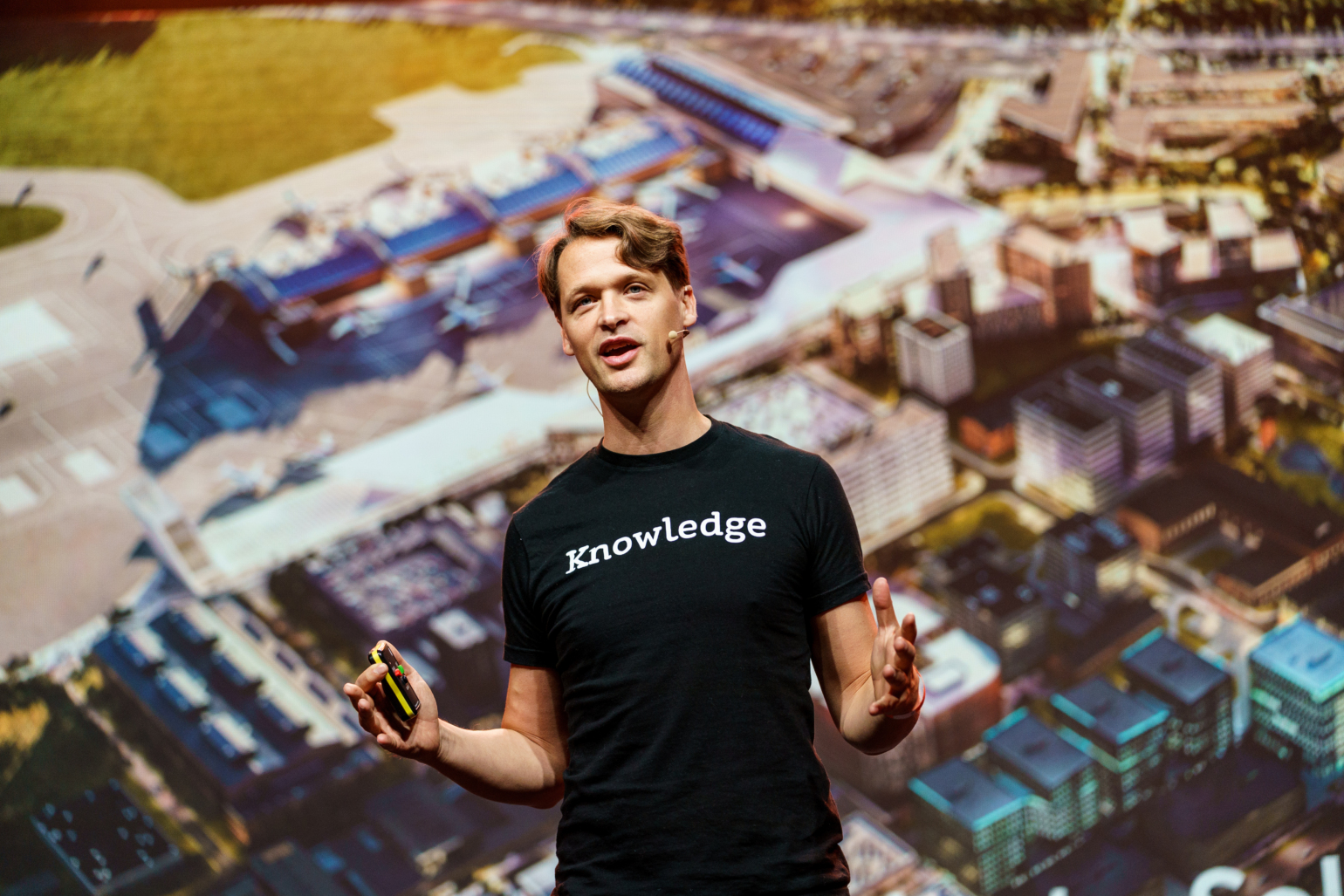
Bio-hacking is not just about collecting and analysing data. The ability to read and redo a person’s so-called ‘code’ by switching off necessary genes or adding missing ones is becoming increasingly accurate. In other words, we are moving further away from the data-driven development of health care towards wish fulfilment and eternal life.
8. The creators of unicorns are distinguished by global thinking and responsibility
With a population of only 1.3 million, Estonia is at the forefront when it comes to unicorns due to the development of technology and the IT sector. Estel Pukk, Director of Human Resources at IT company Eurora, highlighted the three key qualities of outstanding talent that contribute to the creation of unicorns:
- They ‘speak in the language of their customers’, meaning they want to make the lives of their customers better and think of millions of customers at once.
- They consciously use the opportunities offered by technology.
- They possess a so-called headquarter gene – regardless of their role, they assume the strategic responsibility for creating value for their customers on a global scale.
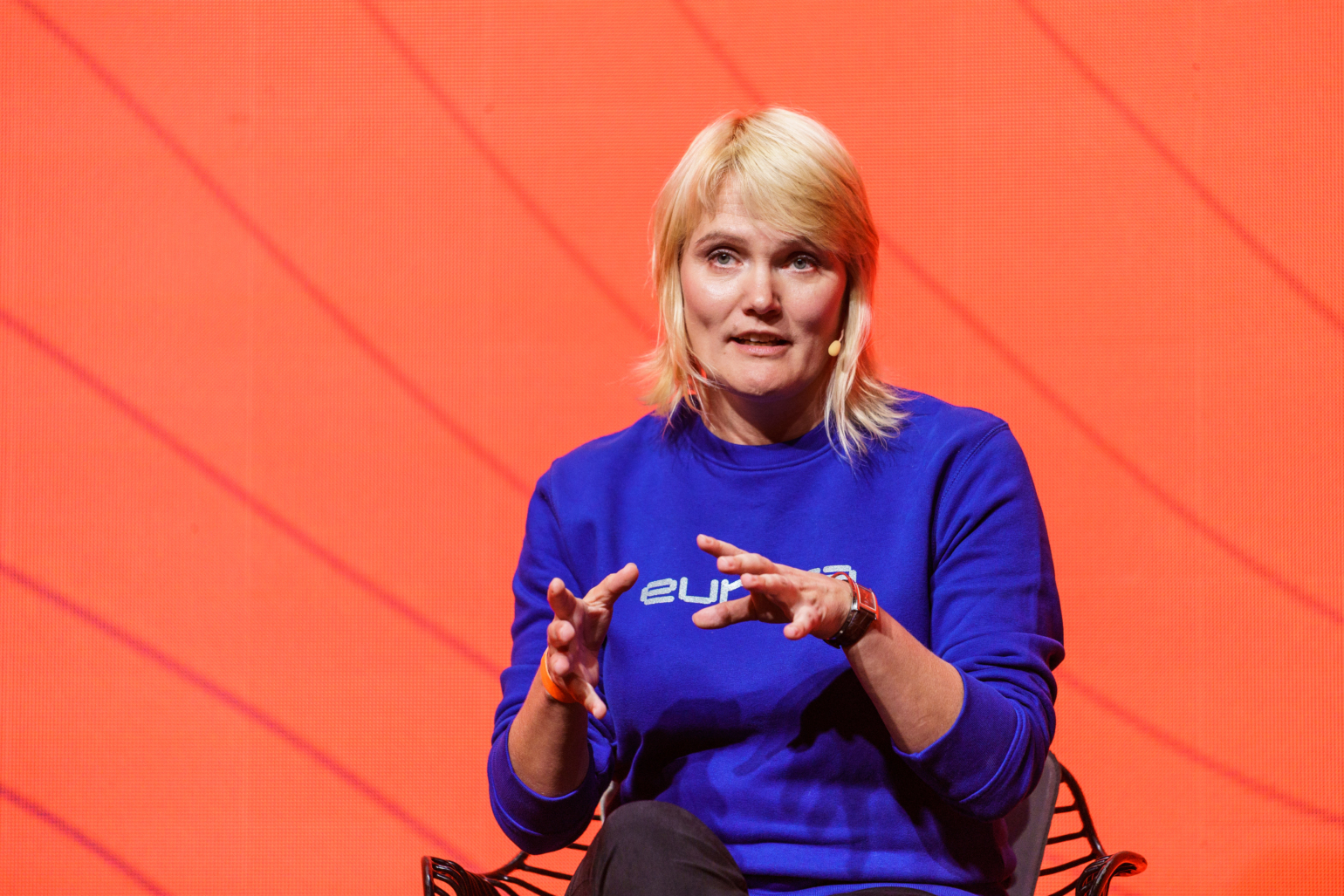
Scientists have also tried to unravel the mystery of what makes people talented, having identified common traits found among gifted people. It turns out that talented people are generally ambitious, conscientious, open-minded and confident, which can even be expressed as arrogance in society. The main thing is that they are active members of society, who follow their convictions, but at the same time, need challenges.
9. An employee’s health becomes the shared ambition of the employee and the employer
Although people often think of health-related activities as something to do outside of working hours, it is actually employers and city planners who need to think more and more about what they can do to support healthy lifestyles during working hours, finds Andero Uusberg, a researcher and psychologist at the University of Tartu.
For example, the Ülemiste City business campus, in cooperation with the Estonian Business School Mainor, has created the scientific model Ülemiste City Radar, which, among other things, makes it possible to develop the health behaviour of more than 13,000 people on the campus. However, Ülemiste City’s globally unique health model, created in cooperation with the University of Tartu, helps to manage the development of talents’ physical, mental and social health.
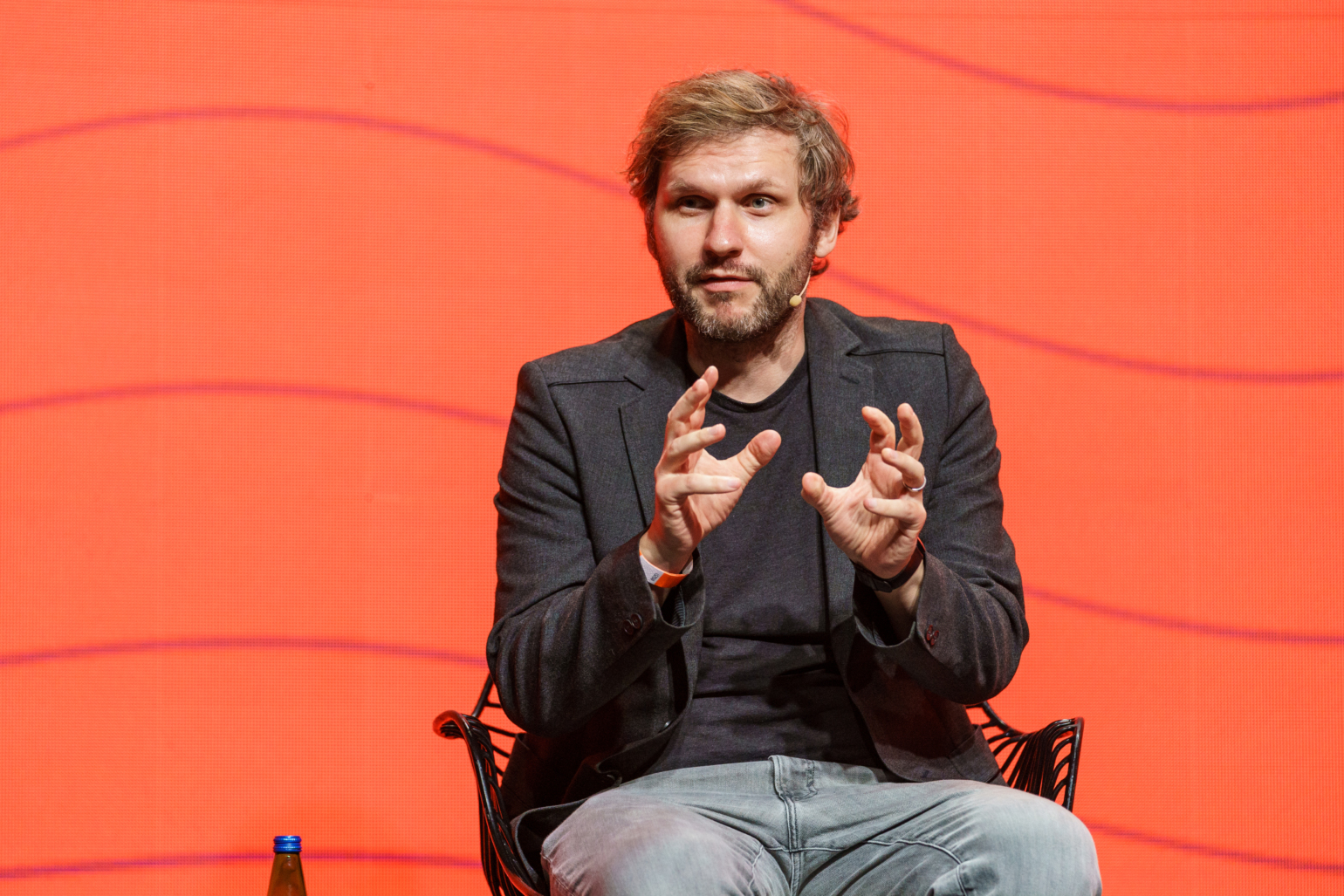
An increasing number of initiatives are being taken to promote the health of employees. For example, Bikeep, the creator of smart bike racks and bicycle parking facilities, has implemented a number of initiatives for employees, such as ‘Bike to Work’ or ‘Pedal to the Medal’, to motivate its own people to be physically more active. However, the telecommunications company Tele2 has established a working culture in Estonia, where mental health is talked about openly, and all employees have the opportunity to meet with an in-house counsellor. The role of the counsellor is to listen and, if possible, give advice when the employee feels that he or she has reached an impasse from which help is needed in order to egress.
10. The ones who dare to think outside the box will succeed
Advances in technology have created the need to adapt quickly, and successful multi-talented people are in demand around the world. In addition to the ability to adapt quickly, talented people who do not fit into preconceived boxes and present challenging ideas are increasingly in demand.
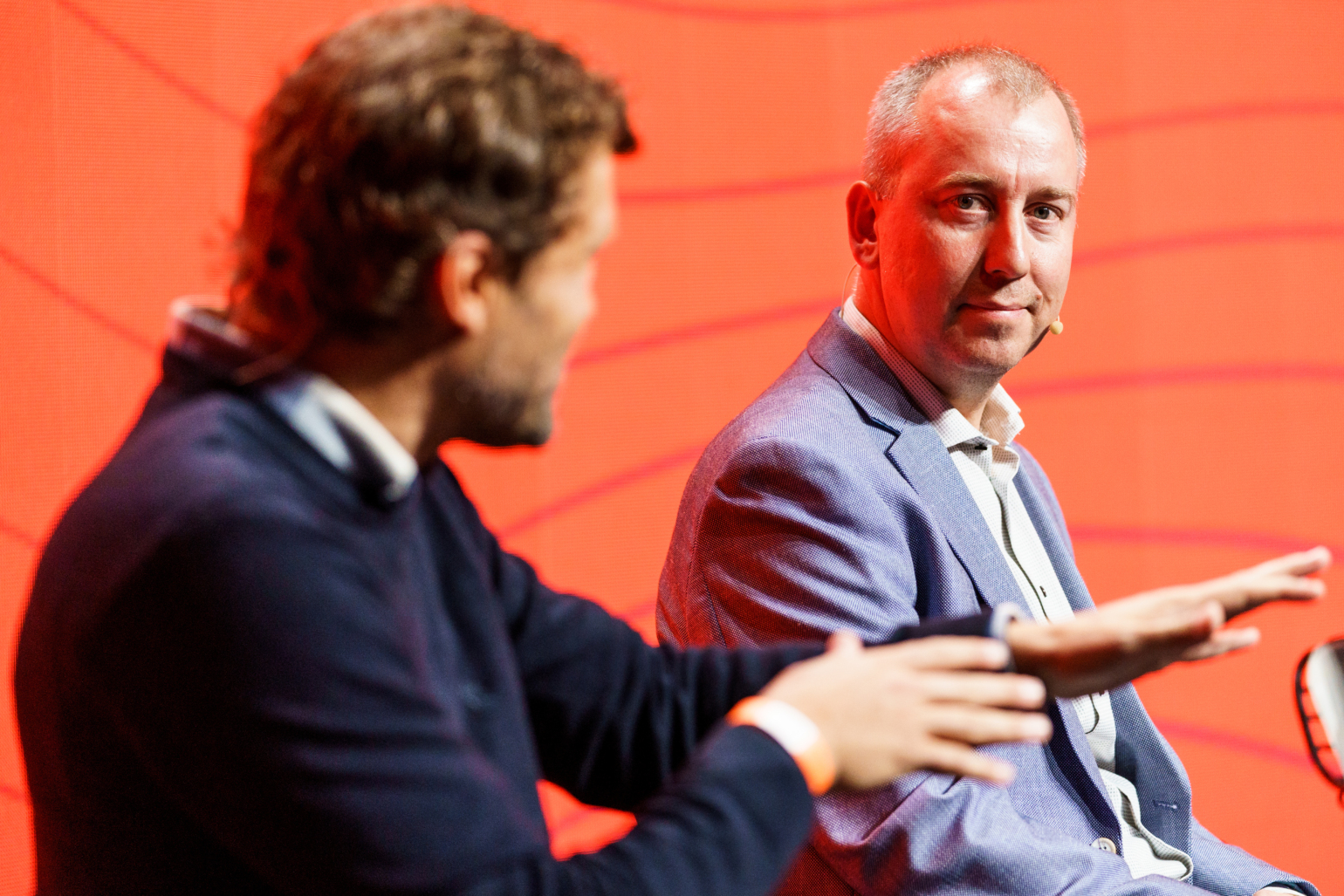
Cultural differences can also become an advantage in the global labour market because it is precisely these people who bring new thinking to the company. ‘During labour migration, the state tries to attract certain types of people, but the difference is what enriches the company,’ said Ivo Lasn, CEO of the successful IT company Playtech Estonia, who highlighted that Playtech became a unicorn thanks to his open mind and relations with Israel.
Future trends were discussed by top Estonian entrepreneurs and experts from 8–10 September, in Tallinn, at the Ülemiste City Future Forum conference, held at our campus. Speakers included Sebastian Pohlmann, Vice President of Automotive and Business Development at Skeleton Technologies; Ben Wilson, British historian and writer; Hannes Sapiens Sjoblad, Swedish entrepreneur and biohacker; and Aune Valk and Vice-Rector for Academic Affairs at the University of Tartu.
